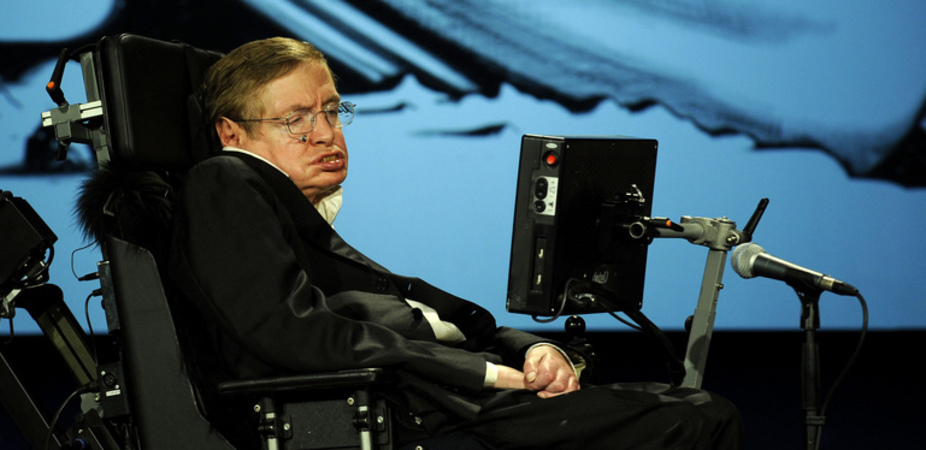Stephen Hawking: Human Aggression Could 'Destroy Us All'

Stephen Hawking may be getting some Hollywood love for "The Theory of Everything," a biopic about his life that earned actor Eddie Redmayne the best actor Oscar at last night's Academy Awards. But that hasn't stopped the world-famous physicist from issuing yet another warning about humanity's impending doom.
Human aggression threatens to destroy us all, Hawking said during a tour of London's Science Museum last week. The remark was in response to a question about what human shortcomings he would most like to alter. Hawking suffers from a neurological disease similar to Lou Gehrig's disease, or amyotrophic lateral sclerosis (ALS).
A major nuclear war would be the end of civilization and possibly the human race, the Cambridge University professor said. Hawking called for greater empathy, and added that human space exploration is necessary as "life insurance" for humanity. [Fight, Fight, Fight: The History of Human Aggression]
"The human failing I would most like to correct is aggression," Hawking said, according to The Independent. "It may have had survival advantage in caveman days, to get more food, territory or partner with whom to reproduce, but now it threatens to destroy us all."
The warning comes as the latest in a long list of cautions Hawking has issued. In January, Hawking signed an open letter warning of the dangers of artificial intelligence (AI). Last December, he told the BBC that the development of full artificial intelligence could end the human race. (The warning was in response to a question about a new AI-powered upgrade to the voice synthesizer he uses to communicate.)
In 2010, Hawking warned that if intelligent alien life exists, it might not be friendly toward humans. Advanced aliens may instead be "nomads," hoping to conquer and colonize any planet within reach, Hawking said in a Discovery Channel television series about his work to explore the secrets of the universe. For this reason, Hawking has also warned against trying to contact aliens.
Follow Tanya Lewis on Twitter. Follow us @livescience, Facebook & Google+. Original article on Live Science.
Sign up for the Live Science daily newsletter now
Get the world’s most fascinating discoveries delivered straight to your inbox.










